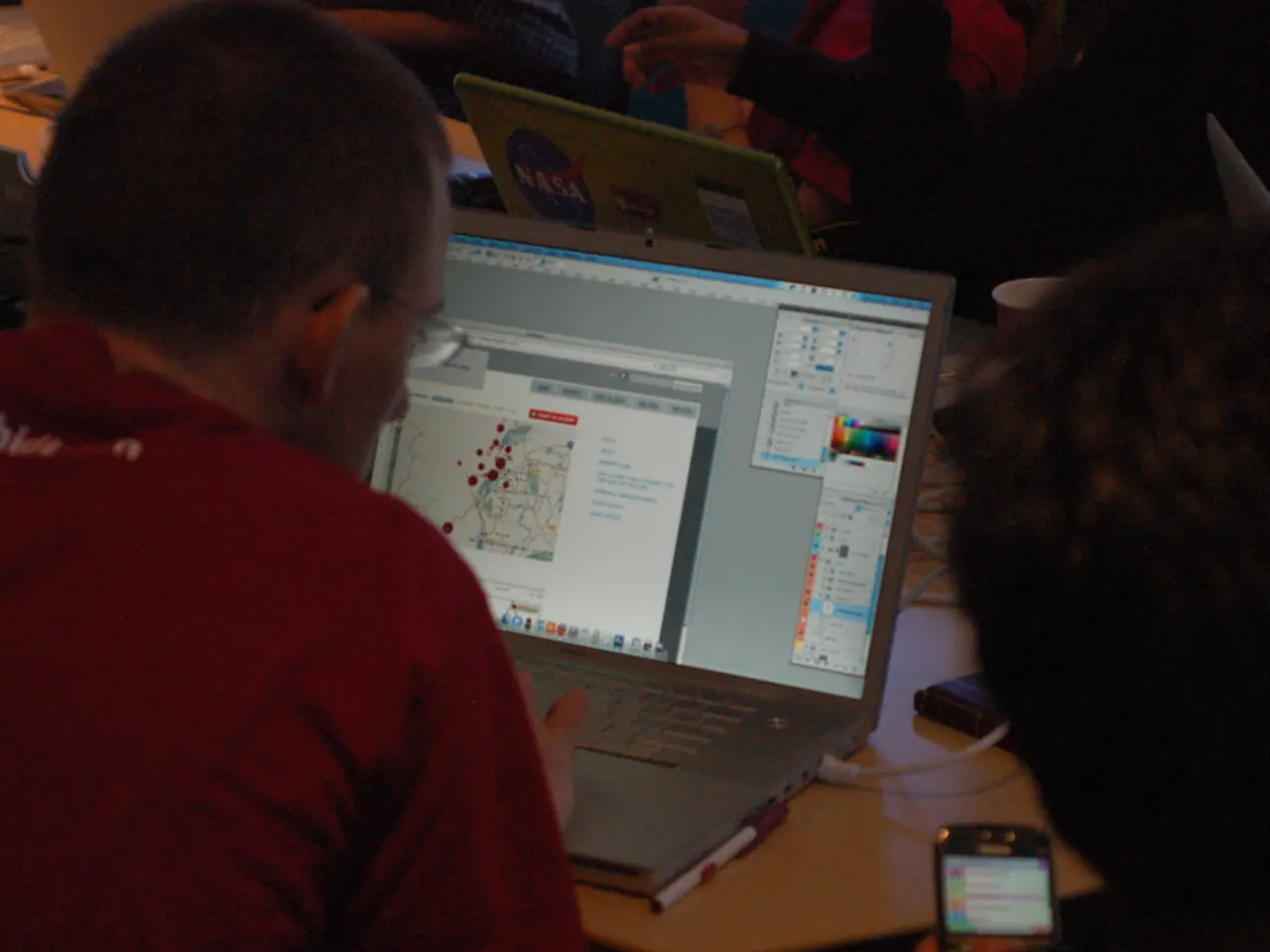User currently active on this platform
In the modern world of work and communication, an interesting trend is emerging: Baby Boomers, the generation known for their traditional values, are gradually adapting to using smartphones for work and communication.
Despite historically lower adoption rates, Baby Boomers are showing a steady presence on smartphones, spending around 157 minutes less on them during the workday compared to Generation Z. This limited mobile engagement, however, is not a sign of resistance but rather a reflection of their focused approach to technology[1].
As time progresses, Baby Boomers are increasingly willing to embrace new digital tools for work. A significant 43% of Baby Boomers who have never used AI tools in their job search plan to start using them soon, demonstrating a growing openness to technology[2].
The adoption of fintech and mobile payment services is also on the rise among Baby Boomers, with usage expected to grow to 42% by 2025. This growth reflects the growing trust in automated and mobile financial services[3][4].
When it comes to choosing a smartphone, Baby Boomers show a preference for Android devices, with 55% of them using Android smartphones. This preference for mainstream platforms may be due to their accessibility and affordability[5].
However, concerns and a cautious optimism about new technology are still present among Baby Boomers, compared to younger generations. They show less concern about AI replacing jobs, signalling a pragmatic approach to integrating technology without fear-based resistance[2].
Meanwhile, in the realm of education, a shift is also taking place. More and more students are writing their texts on smartphones during journalism or writing workshops. This trend, however, is not limited to students, as some startups are replacing traditional computers with tablets and phones in their workspaces[6].
Despite the growing use of smartphones, there is still a sense of formality and professionalism associated with typing important texts and emails on a laptop. This sentiment is shared by many, including those who grew up with desktop PCs of the 2000s, who question the lack of seriousness on a smartphone after scrolling through short video feeds on the device[7].
In conclusion, Baby Boomers are adapting to smartphones by gradually increasing their usage, engaging with AI and fintech tools, adopting mainstream platforms like Android, and participating in mobile communication and payments. However, their overall usage intensity remains lower than younger groups, indicating a slower but ongoing digital transition, especially focused on practical work and communication needs.
[1] Pew Research Center. (2019). Mobile technology fact sheet. Retrieved from https://www.pewresearch.org/fact-tank/2019/01/08/mobile-technology-fact-sheet/ [2] McKinsey & Company. (2020). The future of work: A journey to 2030. Retrieved from https://www.mckinsey.com/business-functions/mckinsey-analytics/our-insights/the-future-of-work-a-journey-to-2030 [3] Statista. (2021). Mobile payment penetration in the United States from 2015 to 2025. Retrieved from https://www.statista.com/statistics/269439/mobile-payment-penetration-rate-in-the-us/ [4] eMarketer. (2020). U.S. mobile payment users to reach 227 million in 2021. Retrieved from https://www.emarketer.com/content/us-mobile-payment-users-to-reach-227-million-in-2021 [5] StatCounter GlobalStats. (2021). Android vs iOS market share worldwide. Retrieved from https://gs.statcounter.com/os-market-share/mobile/worldwide/ [6] Forbes. (2019). The rise of mobile-only workspaces. Retrieved from https://www.forbes.com/sites/forbesagencycouncil/2019/09/27/the-rise-of-mobile-only-workspaces/?sh=66518a544809 [7] The Guardian. (2015). Smartphones are a disaster for writing, says author who refuses to use one. Retrieved from https://www.theguardian.com/books/2015/jul/08/smartphones-disaster-writing-author-refuses-use-one-william-boyd
- Baby Boomers, without resisting new technologies, maintain a focused approach to using smartphones, spending less time on them compared to Generation Z.
- Demonstrating a growing openness to technology, 43% of Baby Boomers who never used AI tools for job searches plan to start using them soon.
- In the realm of entertainment, Baby Boomers show a preference for Android devices, with 55% of them using Android smartphones.




